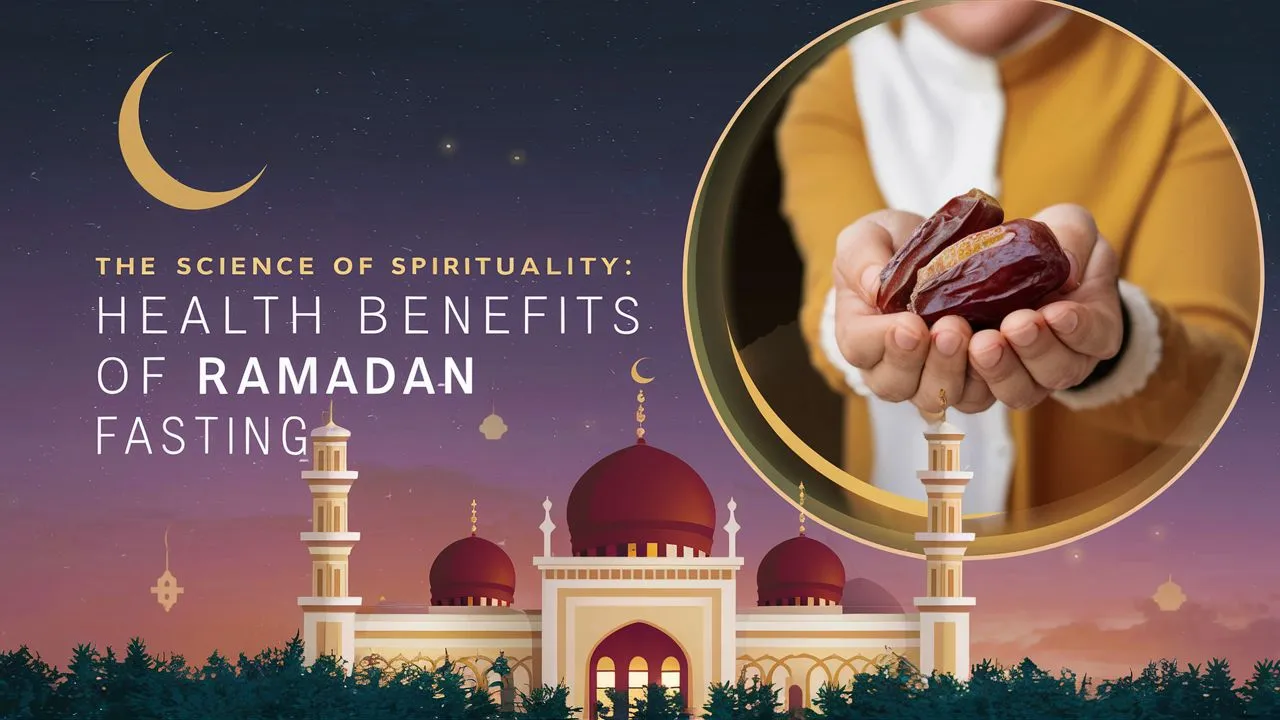What’s Ramadan about?
The main 3rd pillar of Islam during the 9th month of the Lunar calendar marks the beginning of Ramadan. Spenders implant themselves in the premises of faith for 30 days to improve their existence as Christians. Fasting is carried out from daybreak (currently 1.14 am) till the sun goes down or from dawn to dusk.
The purpose of this procedure is to train your mind and body and, by doing this, the practice brings you to realization and to an understanding of the things you have in your life that make yours so good; you start being grateful for what you already have.
The Holy month of Ramadan becomes the very platform where Muslims examine their characters and witness the change of their spiritual self for the better. People are very likely to do what we are doing when the occasion arrives. As such, a large number of people tend to employ this chance to begin anew on things that they have always wanted to change.
The Physical Health Benefits of Fasting
Reduction of Hypertension
In the American Journal of Medicine, a new study has found that short-term fasting with intermittent can help lower blood pressure or hypertension. This research has joined a mass of evidence about intermittent fasting bringing not only the improved risk profile for heart failure but hypertension and other cardiovascular disorders as well.
Boosts brain function
In addition, fasting has been demonstrated to possess a host of advantages at the brain level like a greater amount of NGF (nerve growth factor). This is a protein that oversees processes such as repair and brain cell growth, maintenance, proliferation, and survival.
NGF is recognized as a key factor that, in addition to stimulating the growth of the neurons, is also keeping NGF in normal operation, both in the PNS (peripheral nervous system) and the CNS (central nervous system). Besides that, fasting boosts the emission of brain-derived neurotrophic factor (BDNF), a protein contributing to maintaining the live cells and enhancing the building of others. Drops of BDNF level can be observed among those who are more likely to get Alzheimer’s disease.
Boost Body Composition
Fasting may assist the body in achieving improved body composition. The meaning of this is that it will decrease body weight proportionally, and the person will have more muscles and overall better health.
It reduces cancer risk too fast
It’s True! Intermittent fasting can lower the odds of cancer formation as well. But how? Because of fat and fatty acids in the liver, cancer cells cannot process ketones made during this condition. In general, fasting starves the cancer cells and it becomes weak to the immune functions of the body.
Stimulates Autophagy
Fasting tends to encourage the autophagy mechanism that improves the recycling of defective components in cells and tissues. Sometimes, it sort of acts like a wonderful-looking function and even the cells need renewal and survival without hunger.
Autophagy is the process which increases life expectancy and stimulates the prevention of conditions that coincide with aging, which include cancer, heart disease, and some neurodegenerative diseases such as Alzheimer’s disease and Parkinson’s disease.”
Reduces inflammation
Fasting lowers aging by diminishing inflammation, which is an important factor that accelerates the aging process. This results from fasting since it causes microbial diversity in your GI to be altered. When after interrupting eating, the visiting microbiota is rich in anti-inflammatory bacteria.
Controls sleep patterns
Fasting lowers aging by diminishing inflammation, which is an important factor that accelerates the aging process. This results from fasting since it causes microbial diversity in your GI to be altered. When after interrupting eating, the visiting microbiota is rich in anti-inflammatory bacteria.
Normalizes Ghrelin Levels
With fasting, the ghrelin level is recalibrated to become the normal range for this hormone during starvation or fasting. This is significant, as fasting times help to lose weight without overwhelming feelings of hunger, which is a distinctive feature of most diets.
Ramadan can easily be described as involving fasting, as it has a direct impact on dealing with many health issues and people who practice it feel a tremendous positive impact. One of the aspects which should be mentioned is the system we have built, which enables our specialist doctors who are present all year round to give comprehensive medical care to you during this holiday season as well. Also, health packages in particular are available for varied people of all ages and life stages, which will keep you healthy and disease-free throughout this month of Ramadan.
Get rid of bad habits
Ramadan is the ideal time for you to get rid of the worldly evils you had, as, during fasting, you have to abstain from eating and drinking as well. Addictions like smoking and loaded foods are better eliminated during Ramadan, and soon your body will get used to it so that you can erase vices forever from your life.
A social support system brings added accountability which will be a great way to drop any unwanted habits and you should not have a problem finding one during the Ramadan period. Fasting’s ability to contribute to giving up bad habits is self-evident proof that the United Kingdom’s National Health Council has thrived in promoting smoking cessation during this period.
Toxify
Apart from getting rid of thought this season also helps your body do a great detox. A colon cleanse will provide your digestive system a chance of ridding away toxins every month without the need for you to take your diet in.
This process occurs as your body gives away fat deposits to generate energy. At the same time, it will eliminate anything that might be toxic in the released fat deposits. The aftermath of this detox process will yield you a healthy slate to start from, which will propel you towards an ideally healthy living style.
The Psychological Effects of Fasting
Ramadan embodies both the physical and mental dimensions of life. Fasting is a commitment of the person’s body and soul to the spirit of the fast: a way of spirit and inner sanctification. People practice different types of worship under the umbrella of fasting. These include intensification of one’s acts of worship, spiritual purification of the body, and repentance of sins. Thus, the body is cleansed and the only act of worship left is purifying the soul and emptiness from other worships.
This means that people at such times prioritize concentration on reacquiring self-control and filling life with input that is beneficial. All those qualities of a man are inborn; namely, a lot of patience, strong-willed, and discipline. The other side of the coin is someone genuine. So, Ihsaan is the end goal which means being sincere and good.
In the UK, cigarette control schemes have successfully modeled the Ramadan fasting way of life for health departments.
Worthy of mention is the performance of prayer acts in Ramadhan. It heightens the level of attention one has when communicating with God; in return, it enables people to get the divine strength they need and has the moral power to suppress them from sins.
The Social Effects of Fasting
It is the tradition of Ramadan; therefore, Muslims are gathering and donating to the charity. Communities donate resources ranging himshally into their local mosque for the sake of public welfare. The period of this isolation emerges as a period of the inner life of the majority and for quite a lot of people, it is an occasion for the emergence of a new awareness of what their lives are and feelings of gratefulness.
Charity, which involves donating money or time irrespective of the season or purpose, is equally acceptable than cutting on meals as the Ramadan tradition dictates. Muslims’ traditional faith directs them to give away 2.5% of their assets, which is known as Zakah and is another of the five pillars of Islam.
One of Ramadhan’s most important characteristics is the fact that people call it the month of selflessness and charity, while the £ 100 million estimated amount of charity donated by British Muslims over the month is more than likely. A 2016 report winds up saying that Muslims give charity at £38 every second during Ramadhan.
The month of Ramadan is a complete culture that shapes spiritual, social, and moral values. They exert their influence as the most deprived receive first glance and the inhabitants reflect faith by offering aid and hospitality to their neighbors. Fasting symbolizes the notion of equality, as it puts the rich in the same struggle that they are reluctantly on, and shows them to comply with the less fortunate.
FAQs
1. What are the benefits of Ramadan fasting?
During Ramadan, self-regulation where fasting was involved, manifested as a significant decrease in blood pressure and body weight. Among the fasting Christians coming for the period of Lent, a marked association was noticed when it came to the level of cholesterol.
2. Is fasting for Ramadan healthy?
For instance, a study published in the Journal of the American Heart Association in 2021 revealed that Ramadan could lower blood pressure and protect against cardiovascular disease. Consistency with blood pressure as an outcome, other papers examined about Ramadan have found an inconsistency nevertheless; in several instances in which the trials explored fasting, this is beneficial. Fast though but is only for some Basir was of the view.
3. What happens to your body during Ramadan fasting?
In addition, it helps to improve weight, waist circumference, BMI, body fat, the level of blood sugar, systolic and diastolic blood pressure, and anxiety, respectively. Moreover, during Ramadan, the inflammation and Its pro-inflammatory cytokines IL-1b, IL-6, tumor necrosis factor-a, and cancer promotion briefly go down.
4. Is Islamic fasting bad for health?
It is possible that this regular fast could not negatively impact health as long as it does not trigger an adverse effect in most people. So even though you might be suffering from a chronic illness such as coronary artery disease, kidney disease, or high blood pressure we can safely fast you as long as your condition is well managed and there are no complications.












